What is Total Knee Replacement in Delhi
Total Knee Replacement in Delhi (TKR) is a surgical procedure performed to replace the damaged or worn-out knee joint with an artificial joint or prosthetic. Knee replacement surgery is usually recommended for patients suffering from severe knee pain, stiffness, and loss of mobility, which significantly affects their daily activities.
A damaged or diseased knee joint is replaced with an artificial joint during a total knee replacement, commonly referred to as total knee arthroplasty. Patients who have severe osteoarthritis, rheumatoid arthritis, or other degenerative joint conditions that cause persistent pain, stiffness, or limited mobility often have this surgery.
The surgeon replaces the damaged bone and cartilage in the knee joint with a prosthetic joint comprised of metal and plastic during the procedure. Patients can restore mobility and experience pain relief because of the prosthetic joint’s ability to replicate the knee’s normal range of motion.
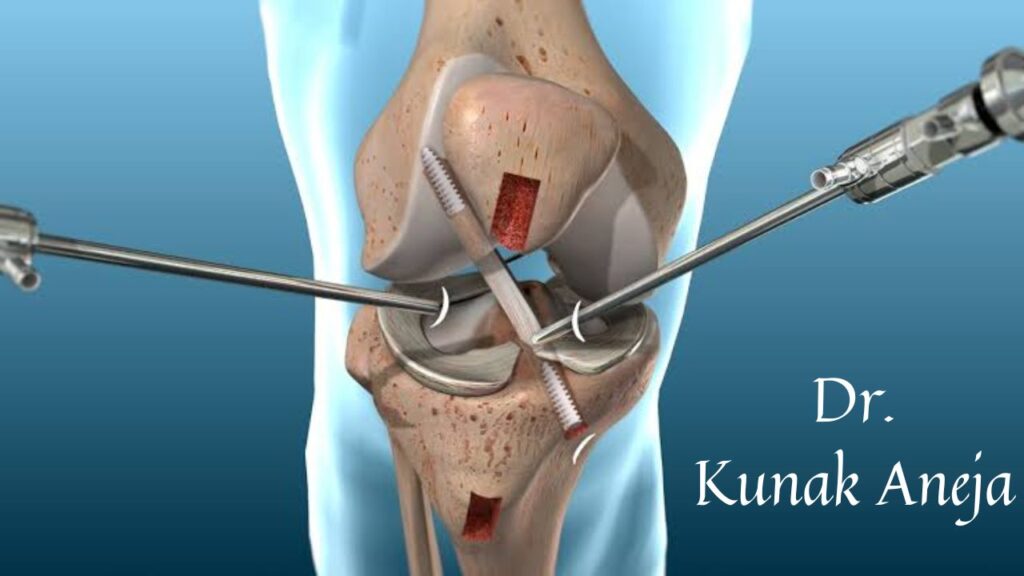
Patients are thoroughly evaluated to see whether they are excellent candidates for total knee replacement surgery prior to the procedure. A review of the patient’s medical history, a physical examination, and different imaging procedures, including X-rays and MRIs, are all part of this evaluation.
The injured joint is removed and replaced with the prosthetic joint after the surgeon creates an incision in the front of the knee. Typically, the entire process takes one to three hours.
Patients normally recuperate in the hospital for a few days following surgery. They receive painkillers, physical therapy, and other therapies to help them manage their pain and restore their mobility during this period. They might also be given exercises to do at home to help the knee joint become stronger and more flexible.
When a total knee replacement is performed, the majority of patients report considerable improvements in their quality of life, including reduced pain and increased mobility. Like with any operation, there are dangers related to the process, such as infection, blood clots, and tissue damage to the surrounding areas.
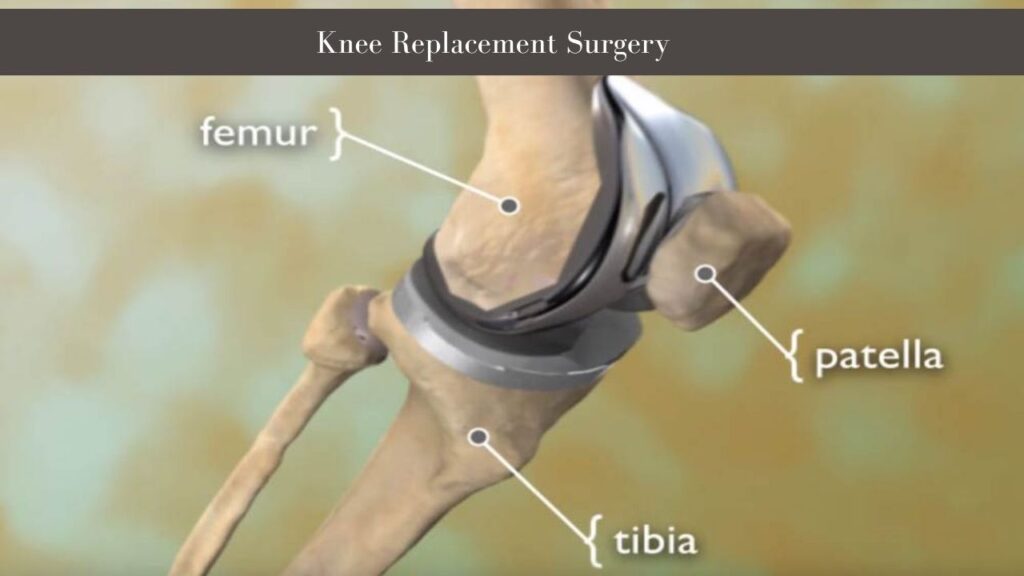
In conclusion, total knee replacement is a surgical technique that may be able to relieve patients’ significant knee pain and mobility problems brought on by degenerative joint illnesses. Although it is a complex surgery that needs thorough planning and evaluation, it can be a good option for many people in terms of enhancing the quality of life and eliminating chronic pain.
Why do we need total knee replacement surgery?
The removal of the diseased or damaged knee joint pieces and their replacement with artificial ones is known as total knee replacement surgery, commonly referred to as knee arthroplasty. Patients who experience chronic knee pain and mobility problems that do not improve with non-surgical therapy are frequently advised to undergo this surgical surgery. In this post, we’ll look at a few of the causes for complete knee replacement surgery.
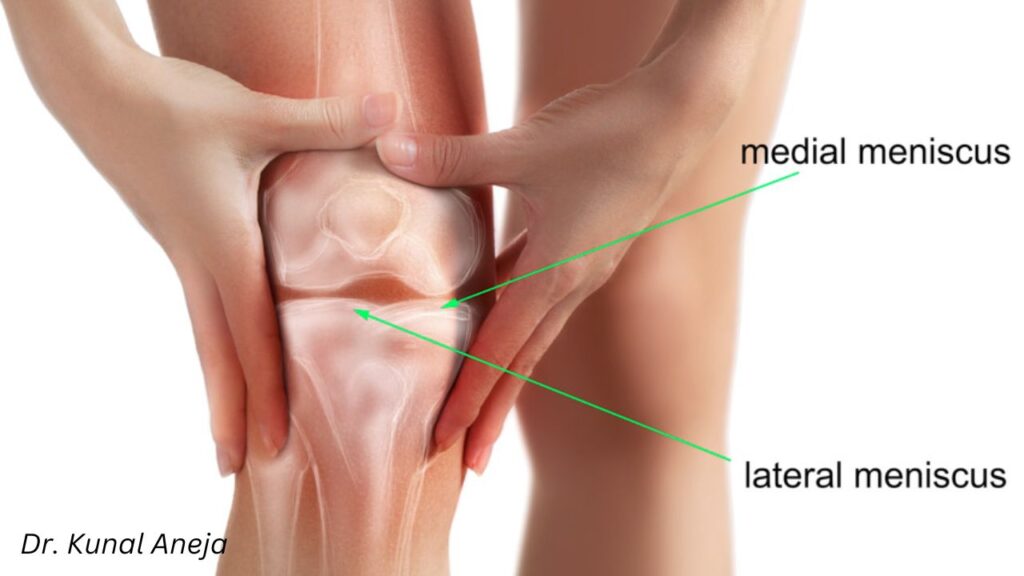
1. Osteoarthritis
Osteoarthritis, a common degenerative joint disease, can make the knee joint painful and inflexible. The bones in the knee joint might rub against one another when the cartilage in the joint deteriorates, causing pain and irritation. Patients with severe osteoarthritis who are not benefiting from existing therapies may be advised to have a total knee replacement.
2. Arthritis rheumatoid
An autoimmune condition called rheumatoid arthritis has the potential to inflame the knee joint, resulting in discomfort, oedema, and stiffness. The inflammation may harm the joint over time, resulting in diminished mobility and functionality. For patients with severe rheumatoid arthritis who are not responding to previous treatments, total knee replacement surgery may be advised.
3. Injury, Traumatic
Chronic knee pain and mobility problems can result from a catastrophic injury to the knee joint, such as a fracture or ligament rupture. For patients who have sustained a catastrophic knee injury that is not responding to other treatments, total knee replacement surgery may be advised.
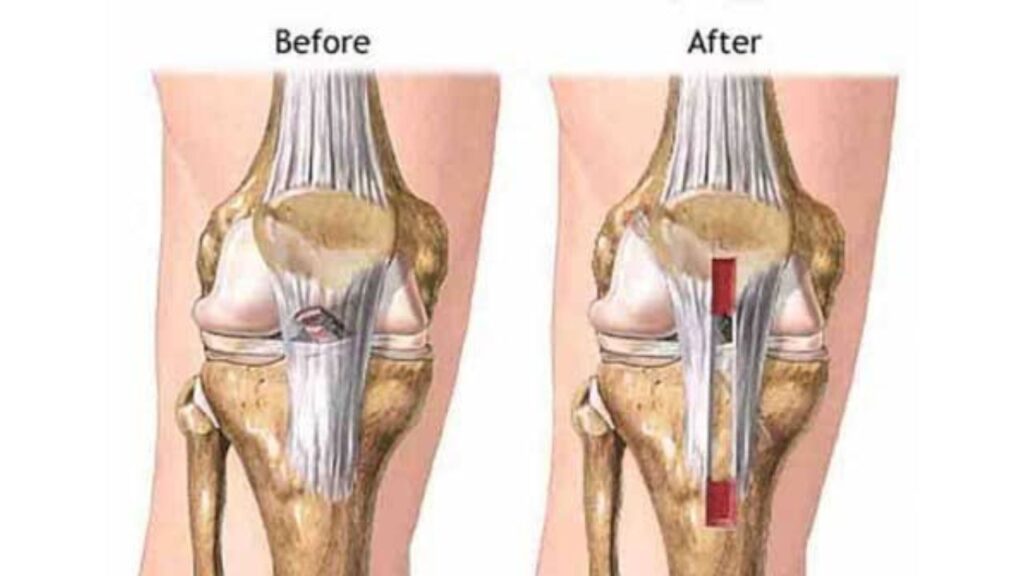
4. Knee Distortions
Some people have knee abnormalities from birth, which can eventually lead to discomfort and reduced mobility. For instance, a person with bent legs might place too much pressure on one side of the knee joint, causing harm and discomfort. For individuals with knee abnormalities that are causing chronic pain and mobility problems, total knee replacement surgery may be advised.
Whole knee replacement surgery may be beneficial if you have chronic knee pain and restricted mobility that does not improve with non-surgical therapy. You may be able to resume activities that were previously too painful to accomplish due to the great pain alleviation and increased mobility that can be achieved through this surgery. Before deciding to get a complete knee replacement, it is crucial to examine the risks and advantages of the process with a licenced healthcare professional.

What are the benefits of total knee replacement?
Surgery for a total knee replacement is frequently done to increase mobility and relieve persistent knee discomfort. During surgery, an artificial knee joint is used to replace any worn-out or damaged knee joint components. Total knee replacement has many potential advantages, despite the hazards that come with any surgery. We will look at a few advantages of complete knee replacement surgery in this article.
1. Pain reduction
Pain reduction is one of the main advantages of complete knee replacement surgery. Individuals who have this procedure frequently notice considerable improvements in their knee pain, enabling them to resume activities that were previously excruciatingly painful. Even though there may be some discomfort throughout the healing process, most patients discover that their pain is significantly diminished over the long term.
2. Enhanced mobility
Improved mobility is a side effect of complete knee replacement surgery. A person’s capacity to walk, climb stairs, and carry out other activities of daily living might be significantly hindered by knee pain and stiffness. Many patients can move more easily and accomplish tasks that were previously too challenging after surgery and therapy.
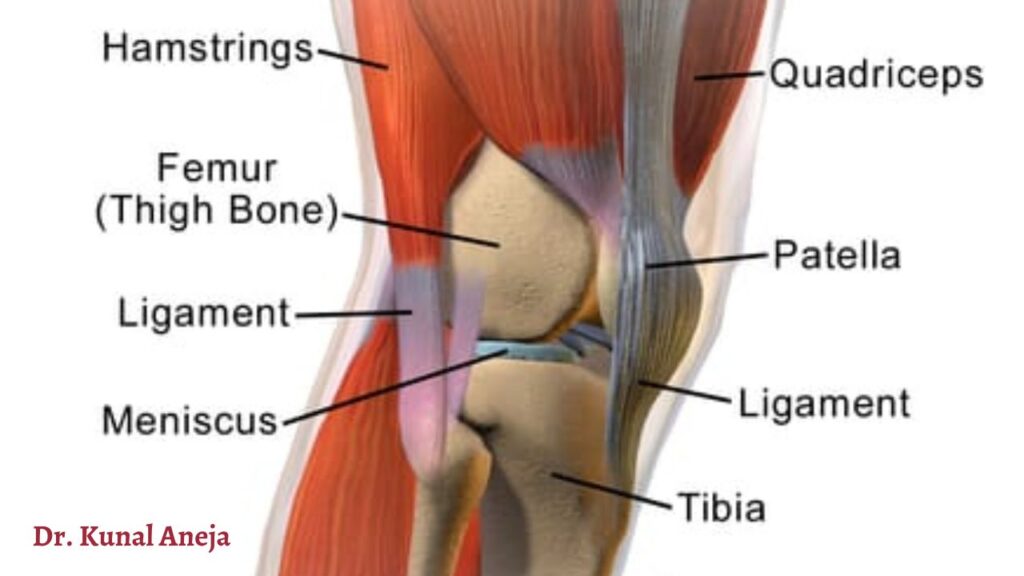
3. Higher Independence
Those with chronic knee pain may find it challenging to take care of themselves and do daily duties. Whole knee replacement surgery can boost a person’s independence and enable them to carry out things that were previously too tough by lowering pain and enhancing mobility.
4. Improved standard of living
A person’s quality of life may be significantly impacted by chronic knee discomfort. It may restrict their capacity for social interaction, interfere with their mood and sleep, and cause feelings of loneliness and depression. By lowering pain and enhancing mobility, total knee replacement surgery can enhance a person’s quality of life by enabling them to resume activities they enjoy and engage more completely with their loved ones.
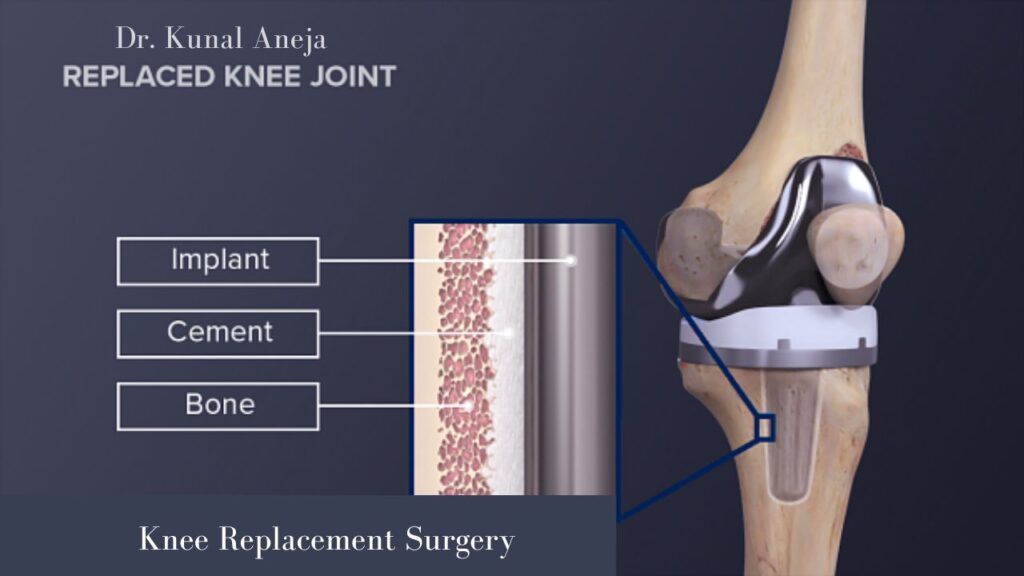
5. Long-term robustness
The majority of patients who undergo total knee replacement surgery report long-term durability of the artificial joint. While the implant may eventually wear out, most patients can anticipate that their new knee joint will endure for at least 15 to 20 years, giving them the opportunity to continue enjoying their increased mobility and quality of life.
For those who experience persistent knee discomfort and limited mobility, total knee replacement surgery can offer a number of advantages. This technique can help patients restore their capacity to enjoy life to the fullest by lowering pain, enhancing mobility, boosting independence, and improving their quality of life. See your doctor if you are suffering from persistent knee discomfort to determine whether total knee replacement surgery would be an appropriate choice for you.

If you are searching best Total Knee Replacement in Delhi so Visit Naveda Healthcare Centre 57 & 61, Pocket D-15, Sector-7, Rohini, Delhi – 110085 and meet Dr Kunal Aneja.
Dr Kunal Aneja is One Of the best orthopaedic doctors and he provides the best Total Knee Replacement in Delhi.

